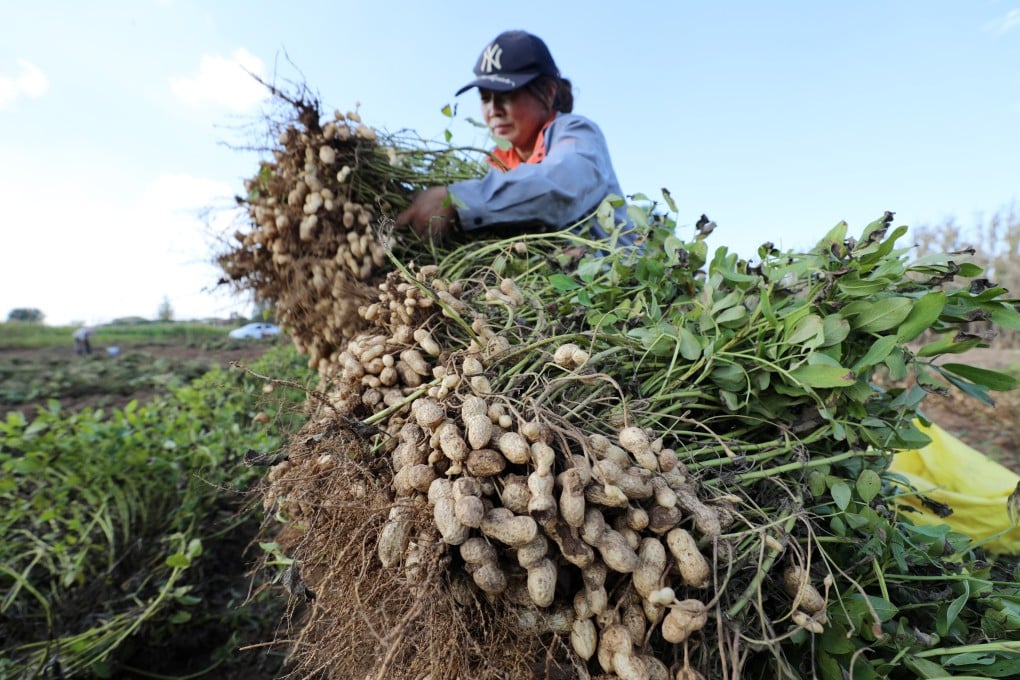China produces world record peanut test crop amid national food security push
- Planting one seed per hole instead of two dramatically increased output in experimental field
- China could triple volumes if the farming methods were applied nationwide, says agriculture agency official

The yield of 12,980kg (28,600lb) per hectare is a breakthrough for researchers at the Shandong Academy of Agricultural Sciences (SAAS) who have been working to increase the yield of peanuts for more than two decades, according to a Shandong TV report.
The yield from the 4 hectare (10 acre) field was 3.4 times the national crop average of 3,780kg per hectare, Tang Song, director of economic crop technology at the National Agro-Tech Extension and Service Centre said, according to Shandong TV.
Tang Fengshou, an expert in yield measurement at the Henan Academy of Agricultural Sciences who inspected the field, told Shandong TV the yield record had been “stuck for eight years”. The previous world record of 11,700kg per hectare – also due to work by SAAS – was set in 2015.
Among its innovations, SAAS launched the “single-seed precision sowing” method, which involves planting one peanut seed per hole instead of two per hole, in 2001.
The “double-seed” method had become the default in China because of issues with seed quality, leading farmers to plant two seeds in each hole to try to ensure at least one could grow, according to the Shandong’s science and technology department.
.jpg?itok=t8OJmsoF)